06:26
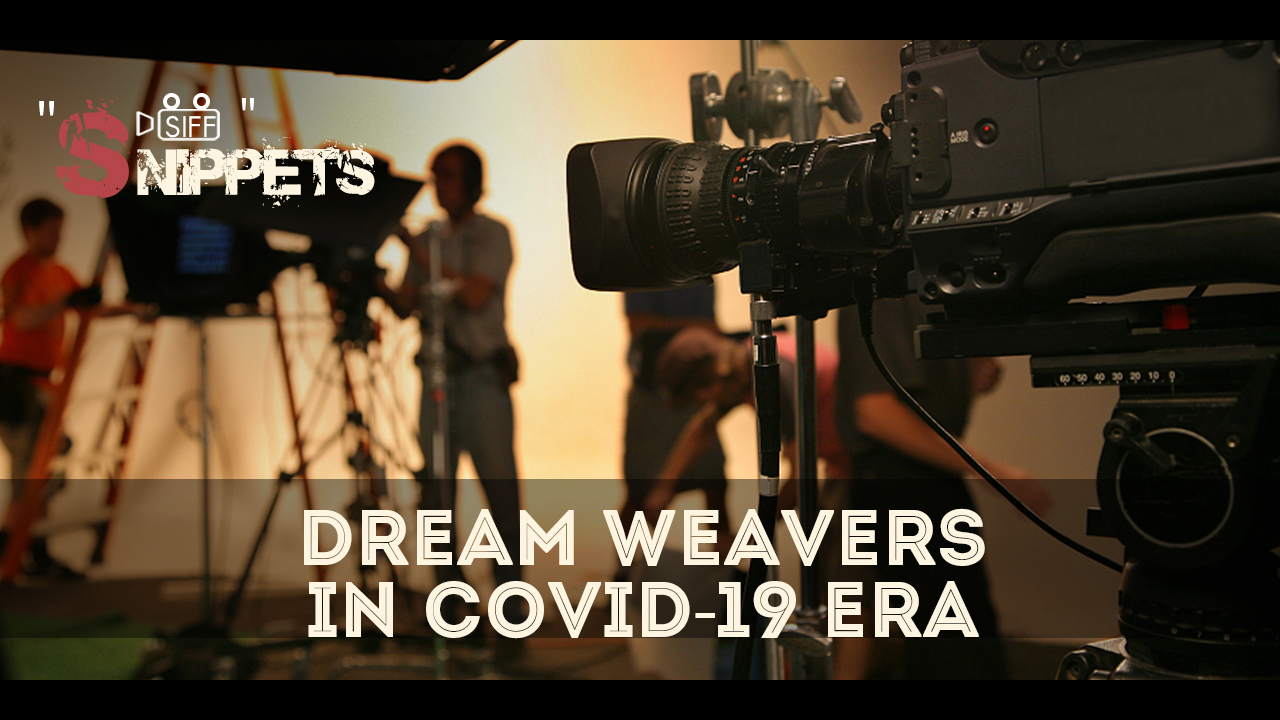
Mankind seems to be living a collective nightmare since the beginning of the year. But despite the horrors of the pandemic, hope fills the industry that makes magic happen, and insiders believe that filmmaking is now at a crossroads, heading towards somewhere more purposeful.
The COVID-19 might have badly hit the movie industry but it is also inspiring change, starting with the mainstay of human interactions, from campfire sites to IMAX screens – stories.
"We are going to start seeing stories that affect us, because everybody has gone through [COVID-19]," said Peter D. Marshall, a filmmaker and film directing coach at Shanghai Vancouver Film School (SHVFS).
Marshall, who moved to Shanghai five years ago, foresees a post-pandemic industry where topics reflect the shared human experience in previous months and common adventures that, before this year, might have seemed stranger than fiction.
The fervor for meaningful human connections was on full display during the Shanghai International Film Festival (SIFF), which concluded over the weekend. The event was a window of hope, for filmmakers and film lovers alike, in a world that increasingly feels like it's caving in.
In Shanghai, the shared passion for the silver screen brought people together and allowed their ideas to cross-pollinate with others.
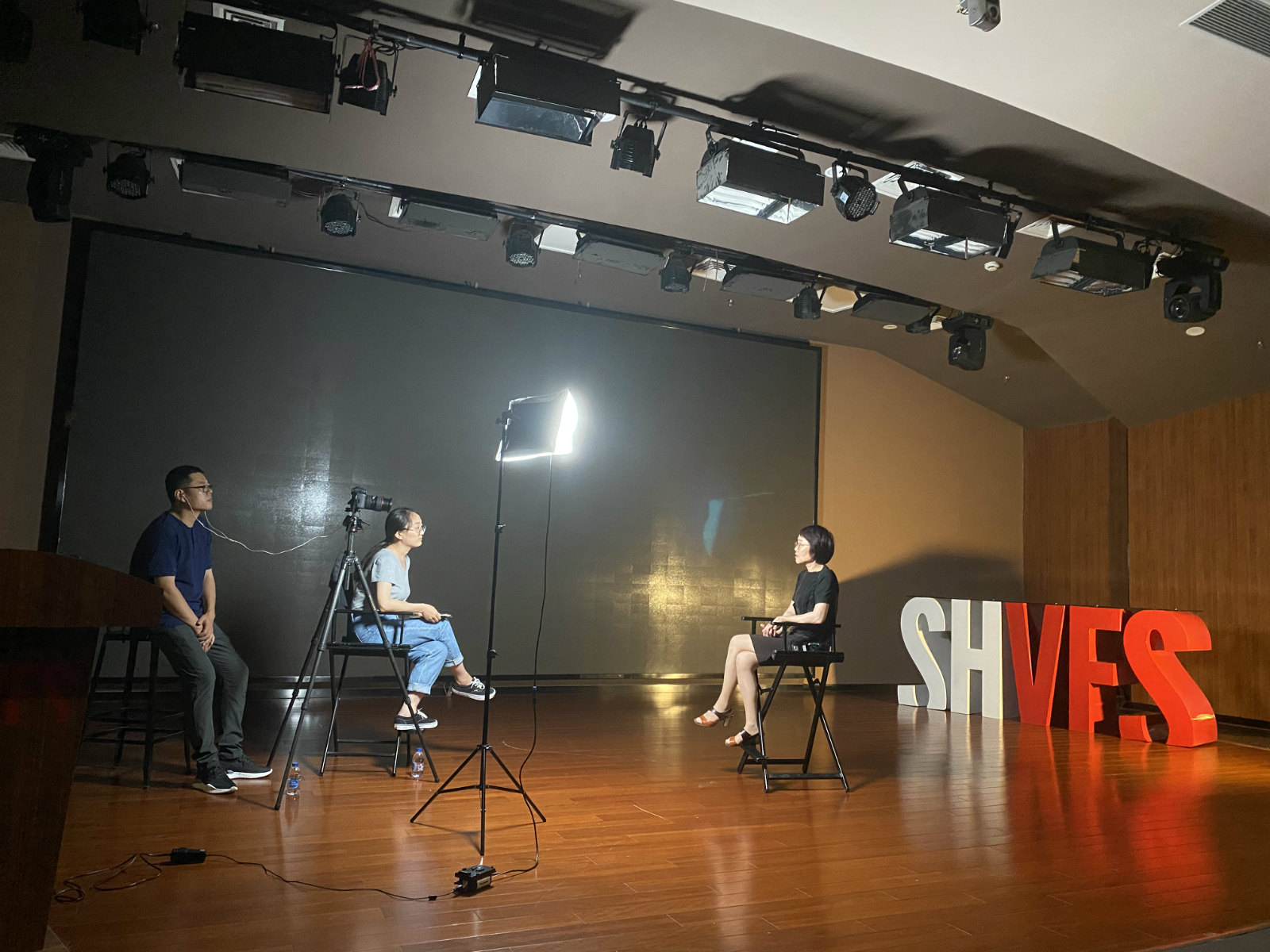
Jiang Weimin, executive president of SHVFS, talks to CGTN. /SHVFS
Jiang Weimin, executive president of SHVFS, talks to CGTN. /SHVFS
"When I saw [SIFF'S] theme poster, with a gate of hope opening to us, it felt like my heart lit up again," Jiang Weimin, executive president of SHVFS, told CGTN.
Seeing the festival materializing, albeit with tweaks to fit the trying times, filled her with excitement and joy. And the high turnout, despite no red carpet event or opening and closing ceremonies, gave her hope.
She knows exactly how challenging COVID-19 can be – and how crucial adapting quick is.

The theme poster of the 23rd SIFF. /SIFF
The theme poster of the 23rd SIFF. /SIFF
Little money, few resignations
The school faced difficulties of its own. The pandemic disrupted their two recruitment periods, forcing the administration to merge them into one. The protracted shutdown of the campus meant money was not coming in and by May, the school was suffering from a cash flow shortage and could barely stay afloat.
"Fortunately, Shanghai University (to which SHVFS is attached) helped us out," Jiang said. The Shanghai government also lent a helping hand by offering preferential policies and introducing new projects.
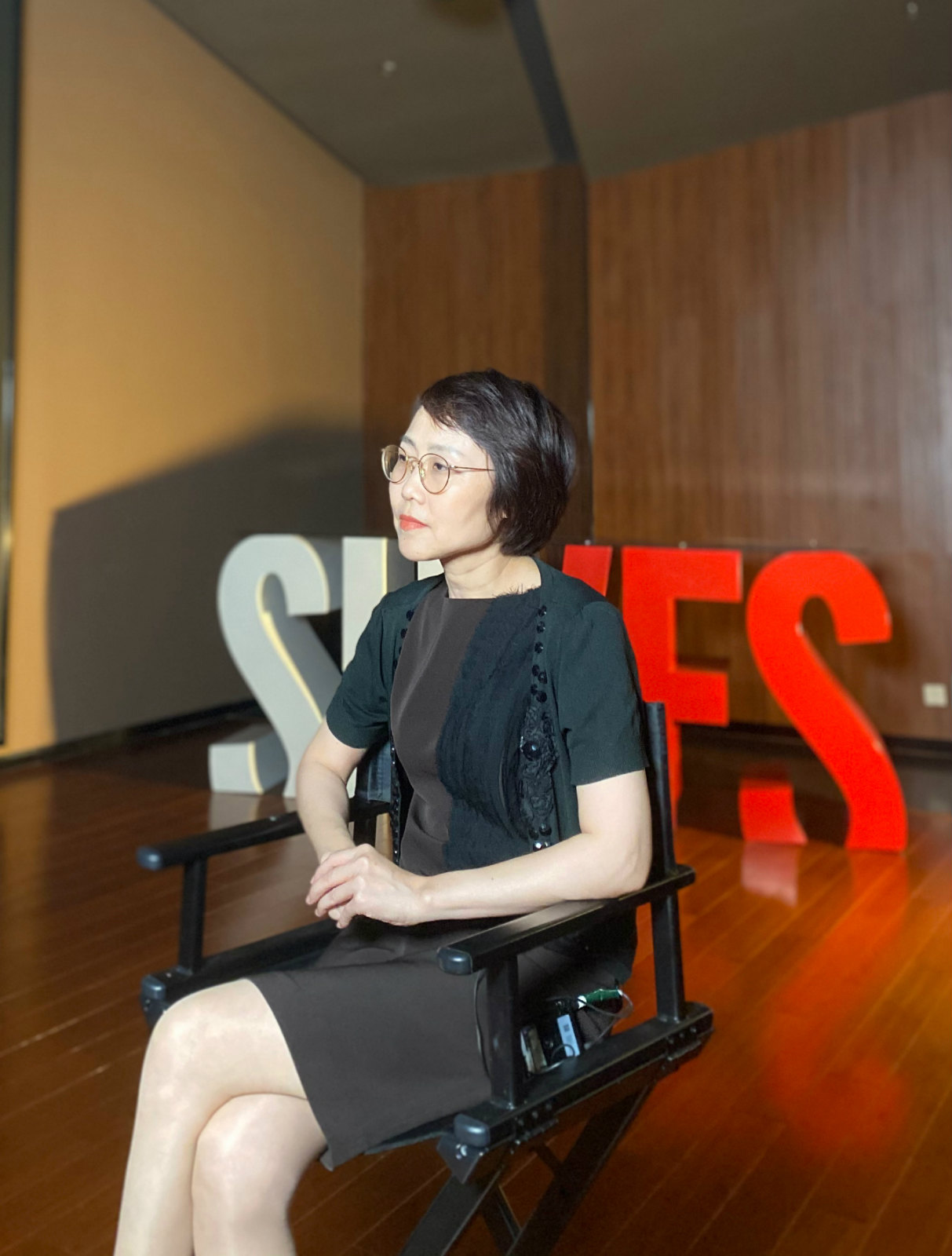
Jiang Weimin, executive president of SHVFS, talks to CGTN. /SHVFS
Jiang Weimin, executive president of SHVFS, talks to CGTN. /SHVFS
Shanghai authorities have been working on a complete film industry chain in the city in recent years, by building film studios and schools, promoting SIFF, and fostering the development of the after-production sector. The SHVFS has been in close cooperation with SIFF for years.
And, of course, online lessons were there to save the day.
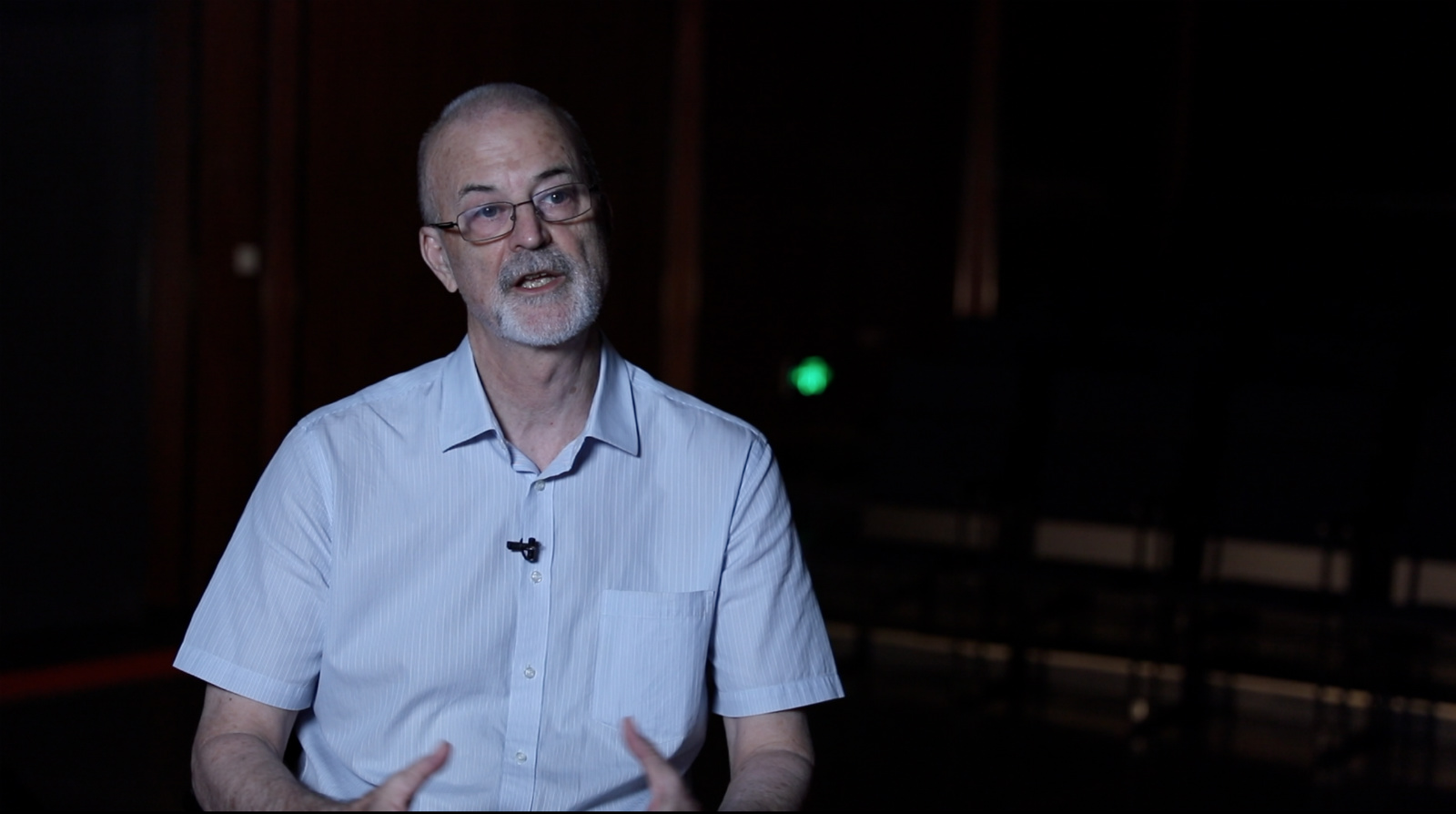
Peter D. Marshall, filmmaker and film directing coach, speaks to CGTN./ CGTN
Peter D. Marshall, filmmaker and film directing coach, speaks to CGTN./ CGTN
With many foreign teachers not being able to make it back because of travel restrictions and others even exiting the industry altogether, taking classes online allowed the semester to get back on track.
But for some, it wasn't the most ideal solution ever. Marshall said learning from home could mean distraction for the students. However, his online lessons were carried out smoothly thanks to a lot of preparation and an analytical approach.
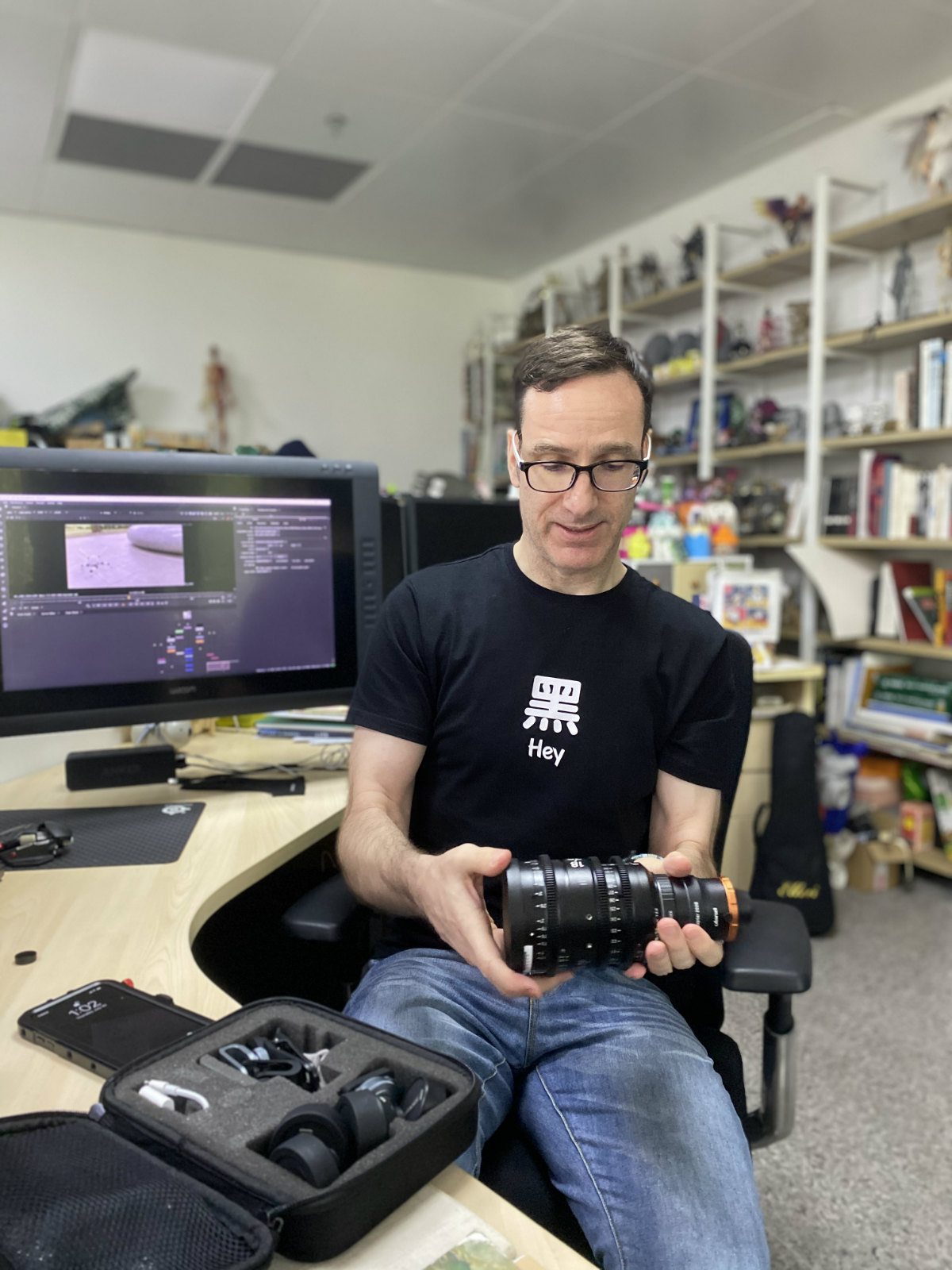
Shawn Patrick Tilling, head of 3D animation and visual effect at SHVFS, introduces a camera lens for shooting films. /SHVFS
Shawn Patrick Tilling, head of 3D animation and visual effect at SHVFS, introduces a camera lens for shooting films. /SHVFS
For Shawn Patrick Tilling, head of 3D animation and visual effect department at the school, it was business as usual.
"We are the internet citizens," Tilling told CGTN, adding, "Most of what we do is sitting down and going through the process."
A camera, audio and a screen recording software – and Tilling was ready to teach. "In fact, we 3D people love online lessons. We are the lucky ones who can transition easily in the pandemic," he said.
Challenges, yes. But let's talk opportunities?

An event during the 23rd SIFF in Shanghai. /CGTN
An event during the 23rd SIFF in Shanghai. /CGTN
But beyond the impact, are there opportunities? For Jiang, the answer is yes.
"After going through the pandemic, the Chinese film industry will return to introspection and come back to the market in a more professional state, instead of relying on hot money and imaginary prosperity."
Even though movie theaters were closed for over six months, she said "films will never die." However, change is coming.
"The pandemic is not the only threat the film industry has faced in its history," she said. "Long before this, we had the impact of television, and we survived. The film industry has deep roots."
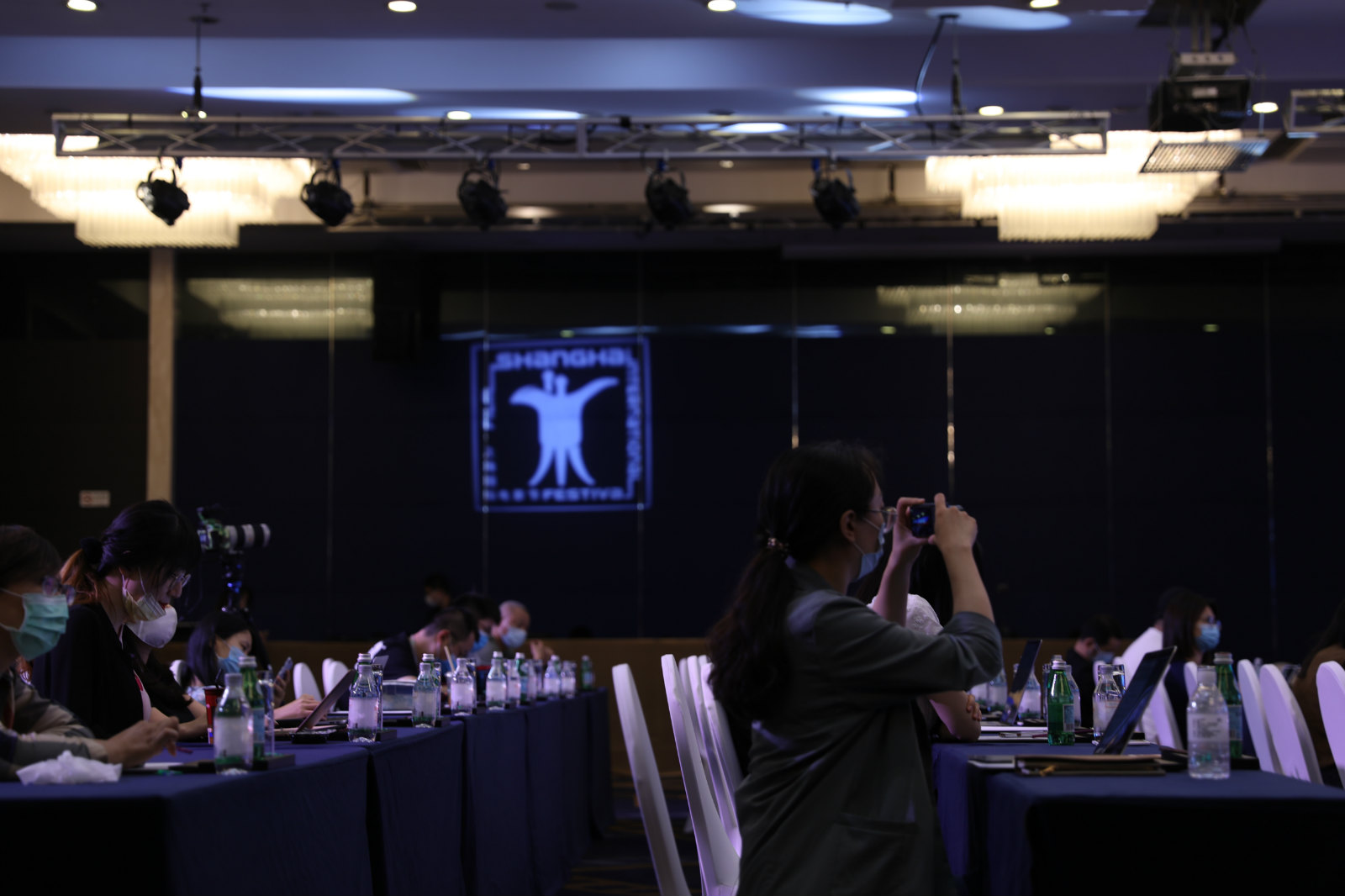
An event during the 23rd SIFF in Shanghai. /CGTN
An event during the 23rd SIFF in Shanghai. /CGTN
For Marshall, the pandemic is a well of wonderful ideas ready to be written down then acted out. The film industry brings hope to human beings, he said, no matter what.
He expects stories less like Hollywood's sci-fi blockbusters and more like touching portrayals of anecdotes that came to light through the months of darkness, such as when Italians went out on their balconies to sing and dance during lockdowns.
"The seven billion of us went through this together," he stressed, adding "Stories have always transitioned, and right now we are in visual media. Twenty, 30, 40, 50 years from now, who knows?"
"But we'll always have stories."
Reporter: Ai Yan
Photographer: Zhang Wanbao
Videographer: Ai Yan, Zhang Wanbao, Wang Dawei
Cover image designer: Jia Jieqiong
Copy Editor: Nadim Diab
Project Manager: Zhang Xiaohe
Supervisor: Zhang Shilei